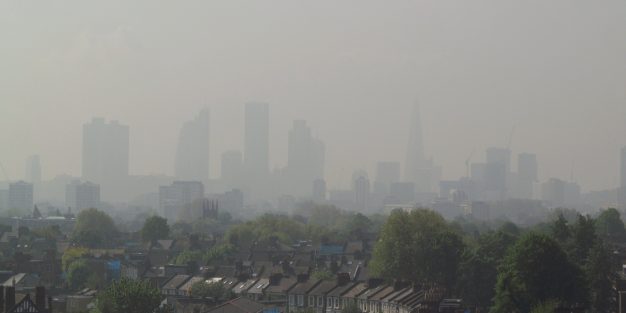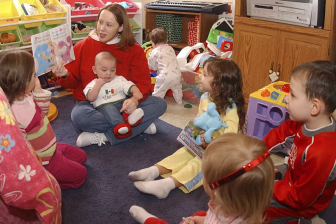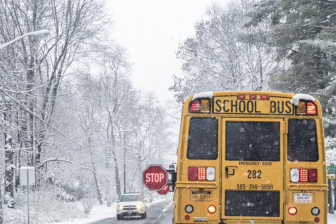
Three million children in England are at school in areas with toxic air
Children in London are four times more likely to go to school in areas with higher pollution levels that exceed World Health Organisation (WHO) limits than those anywhere else in England.
This poor air quality, says the London Mayor’s office, stunts the growth of children’s lungs and worsens chronic illnesses, such as asthma, lung and heart disease.
New research published by the office has found that around 3.1m English children are attending schools in areas exceeding WHO limits for particulate matter (PM2.5). This is one two main air pollutants of concern in London, based on their impact on human – and crucially here children – the other being nitrogen dioxide (NO2).
The Mayor’s office says that while its actions have helped achieve a ‘substantial reduction’ in the number of Londoners living in areas exceeding legal limits for both particulates, there are still tens of thousands of people in the capital living in neighbourhoods where levels are above WHO guidelines.
‘Poor air quality stunts children’s growth’
Sadiq Khan, the Mayor of London, said: “For too long it has been accepted that children growing up in London will breathe more polluted air than their friends and family outside this great city. But I don’t accept this. I’m doing everything in my power to stop young Londoners breathing air so filthy that it damages their lungs and causes thousands of premature deaths every year. This is why I’m expanding the Ultra Low Emission Zone later this year.
“I want to make sure all of London meets the World Health Organisation limits for particulate matter. But I can’t do it alone and I want to work with Government to achieve this goal. That’s why I’m asking for the new Environment Bill to include legally binding WHO recommended limits to be achieved by 2030. We can’t sleep walk from the health crisis of COVID back into complacency over the major impact of toxic air on everyone’s health.”
The study on the impact of London’s air pollution found children growing up in polluted parts of the capital showed significantly smaller lung volume, with a loss of approximately five per cent in lung capacity – equivalent to two large eggs – compared to their peers in the rest of England.
The research was carried out by King’s College London, Queen Mary University of London and the University of Edinburgh, and monitored children from 28 schools in Tower Hamlets, Hackney, Greenwich and the City of London which fail to meet EU nitrogen dioxide limits. Another recent study by Imperial College, commissioned by City Hall, found that the Mayor’s air quality policies and wider improvements in air pollution will increase the average life expectancy of a child born in London in 2013 by six months.
‘Decision-makers must take immediate action’
Earlier this year the government announced that consultations had started on setting new national air pollution targets, as part of its response to the death of a nine year old girl from what a coroner called ‘excessive air pollution’. Local councils will be given extra funding to improve air quality, as the authorities continue to react to Ella Adoo-Kissi-Debrah’s death in 2013. She died from asthma caused by toxic air, and in the subsequent inquest the coroner for South London ruled that air pollution, had been a ‘material contribution’.
The Government’s response to the coroner’s Prevention of Future Deaths Report sets out that a number of key measures. They include immediate action to increase public awareness about air pollution. This will include a comprehensive review of existing sources of information – including UK Air and the Daily Air Quality Index (DAQI) – to include more specific messaging for different population groups. This will help health professionals in advising patients when poor air quality is forecast. The Government will also look at working with relevant health charities on longer-term campaigns aimed specifically at vulnerable groups.
Nyeleti Brauer-Maxaeia, co-founder of the charity Choked Up, said: “Children’s exposure to criminal levels of air pollution can have devastating consequences on their health for years. It is simply not good enough that air pollution is not being tackled with the urgency that is necessary. Decision makers and lawmakers must take immediate action, for example through the expansion of the ULEZ, to prevent this air quality crisis from marking more young lives.”



